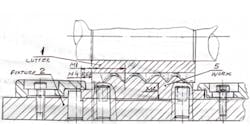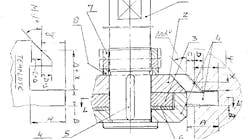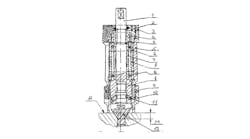The winner of the 2nd Annual Society of Automotive Engineers (SAE) Detroit Section / Massachusetts Institute of Technology Enterprise Forum (MITEF) Vehicle Innovation Competition is Engineering Technology Associates’ Accelerated Concept to Product (ACP) process — a multi-disciplinary approach that uses computer-aided engineering tools to generate optimized design solutions.
The SAE competition identifies innovative solutions to current automotive industry challenges.
ACP was developed as WorldAutoSteels’ Future Steel Vehicle (FSV) Design Methodology, a multi-disciplinary approach utilizing computer-aided engineering tools to generate optimized design solutions. It is a comprehensive analysis that manufacturers use to reduce costs significantly, improve process efficiency, and reduce mass, as well as to improve product performance and fuel economy. ACP develops “non-intuitive solutions” for structural performance including optimized shapes and component configurations.
“The roots of this unique design approach are showcased in prior American Iron and Steel Institute (AISI) research programs with car companies like Chrysler’s Lightweight Steel Body and Auto/Steel Partnership’s Future Generation Passenger Compartment Project,” stated Jody Shaw, manager of technical marketing and product development for U.S. Steel and chairman of FSV.
The Future Steel Vehicle program is the latest iteration of an ongoing R&D effort by AISI and the domestic auto industry, to develop practical automotive designs in steel. FSV’s particular goal is to reduce vehicle mass in the range of 35 percent, and it introduces steel solutions for next-generation electrified powertrain vehicles.
“In the FSV program, we are fully integrating and enhancing the methodology and will see its first deployment in Phase 2 with preliminary results expected in May 2010 and full program results scheduled for release early in 2011,” Shaw said.
The program chairman said FSV researchers anticipate that the prototype vehicle’s mass savings will be achieved by using advanced steel grades and fully optimized structural design.
“Contrary to conventional methods where just one or a few design variables are evaluated, the new design methodology simultaneously evaluates hundreds of design variables under multiple load conditions,” said Akbar Farahani, v.p. of engineering and consulting, ETA. “Only those concepts which meet all of the design targets and manufacturing constraints are selected. Ultimately the final result is the optimal solution which addresses all of the load, manufacturing, material and cost constraints.”



